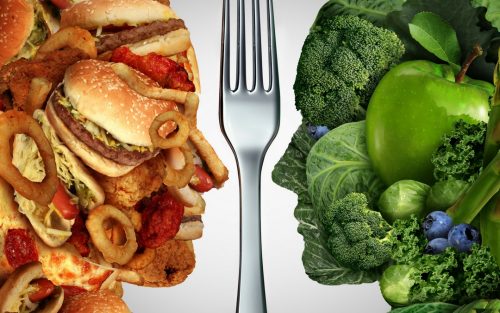
by Feeling Great | Gut Health, Mental Wellbeing
Gut Health and Happiness – What’s the Connection?
Did you know your gut health can directly impact your happiness? It’s true! While juggling work, family, relationships, and daily stress, many overlook a key factor in their well-being—the gut microbiome.
Your body contains more bacteria than cells, and these tiny organisms play a crucial role in your mood, energy, and overall health. When balanced, they boost digestion, reduce inflammation, and even help you feel energized and clear-headed.
But if your gut is out of balance, stress levels rise, digestion suffers, and mental well-being declines. Let’s explore how a healthy gut can make you feel happier, sharper, and more energized.
7 Connection of Gut Health and Happiness
1. Strengthens Immunity for a Healthier You
Around 80% of your immune system lives in your gut. A strong microbiome protects against illness, infections, and allergies, keeping your immune system running smoothly.
What does this mean for you?
- Fewer sick days
- More energy for work, family, and fun
- A body that feels strong, resilient, and ready for anything
2. Increases Natural Energy Levels
Many rely on caffeine and sugar to stay energized, but your gut can naturally fuel your body. A balanced microbiome:
- Supports digestion for better nutrient absorption
- Produces energy-boosting B vitamins
- Regulates blood sugar to prevent energy crashes
With a healthy gut, you’ll wake up feeling refreshed—no energy drinks required!
3. Supports a Healthy Weight
Struggling to maintain your ideal weight? Your gut microbiome plays a key role in metabolism, digestion, and fat storage. It helps:
- Balance blood sugar, reducing sugar cravings
- Produce hormones that signal fullness
- Improve nutrient absorption, preventing malnourishment
When your gut is thriving, it’s easier to reach and maintain a healthy weight without restrictive dieting.
4. Sharpens Focus & Mental Clarity
Ever feel foggy-headed or forgetful? Your gut is directly linked to brain function. Good bacteria send positive signals to the brain, improving memory and focus.
But when bad bacteria take over, they produce toxins that cause:
- Brain fog
- Memory issues
- Mood swings
By keeping your gut healthy, you’ll stay sharp, focused, and mentally clear.
5. Balances Mood & Reduces Stress
Your gut produces 90% of serotonin, the happiness chemical that affects mood, sleep, and stress levels. A thriving microbiome:
- Lowers cortisol (stress hormone)
- Reduces anxiety and depression
- Helps you feel calm, positive, and emotionally balanced
A happy gut means a happier you!
6. Enhances Skin Health & Radiance
Your skin is a reflection of gut health. When digestion is off, inflammation rises, leading to:
- Acne and breakouts
- Dryness and irritation
- Premature aging
A strong microbiome boosts nutrient absorption, leading to glowing, youthful skin from the inside out!
7. Protects Your Smile & Oral Health
Did you know your mouth has its own microbiome? Good bacteria protect against:
- Cavities and gum disease
- Bad breath
- Tooth sensitivity
A balanced gut promotes a bright, healthy smile, making you look and feel your best.
Final Thoughts: A Happy Gut = A Happier You – Gut Health and Happiness
When your gut thrives, your body and mind do too. From energy and focus to mood and skin, your microbiome plays a crucial role in overall happiness.
Ready to boost your gut health and feel amazing? Start today—your happiness depends on it!
Want to read more about Microbiome? Read This! Need help getting your microbiome in tip top shape? Click here to book online.
Hoping this article helped you understand your body a little better. Know anyone who would benefit from it as well, please pass it on.
Loads of gut health and happiness, Julie xo

by Feeling Great | Body, Mental Wellbeing, Mind, Weight Loss
10 Things You Should Know About Your Microbiome
If you had to name one of the most groundbreaking medical discoveries, what would it be? As a health practitioner, my answer is clear—the microbiome.
This vast community of trillions of bacteria lives in your gut, mouth, lungs, nasal passages, skin, and even brain. While we’ve known about these bacteria for years, we now understand their crucial role in nearly every aspect of our health.
Here are 10 key facts about your microbiome and why it matters:
1. Your Body Has More Bacteria Than Cells
Believe it or not, bacteria outnumber your cells 9 to 1. Even more surprising, the genes in your microbiome outnumber your own DNA by 150 to 1!
2. Your Microbiome Controls Essential Functions
Friendly bacteria help:
- Digest food and absorb nutrients
- Regulate metabolism and appetite
- Boost immunity and fight infections
- Enhance mental sharpness and mood
- Support heart and bone health
Without them, your body struggles to function properly.
3. Not All Bacteria Are Bad—Many Are Your Allies
Bacteria often get a bad reputation, but most are beneficial. They help restore gut health, combat fatigue, ease anxiety, improve skin conditions, and even reduce pain.
4. A Healthy Microbiome Affects Weight Loss
Your gut bacteria influence digestion, metabolism, and cravings. Some bacteria encourage inflammation and sugar cravings, while others support weight loss. A balanced microbiome keeps you energized, lean, and strong.
5. Rebalancing Your Microbiome Helps Burn Fat
Scientific studies confirm that a well-balanced gut boosts metabolism and fat loss. This is something I’ve seen firsthand in my naturopathic practice—when patients improve gut health, weight loss follows naturally.
6. Your Microbiome Impacts Mental Health
Your gut and brain are connected. If your microbiome is imbalanced, it can lead to:
- Anxiety and depression
- Fatigue and brain fog
- Memory issues and mood swings
7. Stress Can Damage Your Gut in Just 24 Hours
Bacteria have short lifespans—about 20 minutes. That means a single day of stress can alter your gut balance drastically. However, you can restore it quickly with the right foods and probiotics.
8. Probiotics Help Restore Balance
Probiotics are live bacteria that replenish your gut. You can find them in:
- Supplements
- Fermented foods like yogurt, kefir, sauerkraut, and kimchi
9. Prebiotics Feed Your Good Bacteria
Prebiotics are fiber-rich foods that nourish healthy bacteria. Some top sources include:
- Asparagus, garlic, onions, leeks, carrots, and radishes
- Turmeric and cinnamon
10. The Future of Medicine Is Rooted in the Microbiome
Experts predict that gut health research will reshape modern medicine. The Mayo Clinic has even called microbiome science as important as genetics and germ theory.
Final Thoughts: Support Your Microbiome Today
Your microbiome is your hidden health powerhouse. By nourishing it with probiotics, prebiotics, and gut-friendly foods, you can improve digestion, boost energy, sharpen focus, and even enhance your mood.
Start prioritizing your gut health—your entire body will thank you!
Book Here if you need help with your microbiome? Fatigued, stressed, anxious, depressed, overweight, headaches, acne, eczema, colds, infections, joint and muscle pain….

by Feeling Great | Mental Wellbeing
Food and Emotions: Do You Turn to Food for Comfort?
Understanding Emotional Eating and How to Overcome It
Food and Emotions? Do emotions influence your eating habits? Many people reach for food when feeling stressed, anxious, or overwhelmed. It is a common challenge that often leads to frustration and guilt. The cycle can feel endless, but with the right approach, you can break free and build healthier habits.
Do you ever reach for snacks when feeling stressed, bored, or overwhelmed? Emotional eating is a common struggle that often leads to frustration and guilt. The cycle can feel endless, but the good news is that you can break free. By recognizing triggers and adopting healthier coping strategies, you can regain control of your eating habits.
Why Emotional Eating Happens
For many, the connection between food and emotions starts in childhood. Parents may use snacks as a way to comfort, distract, or reward. Over time, this creates an emotional link to eating. As an adult, you might crave certain comfort foods simply because they remind you of happy memories.
Signs of Emotional Eating
- Eating when feeling stressed, sad, or anxious
- Craving specific comfort foods, even when full
- Feeling out of control around food
- Using food as a reward or distraction
Food and Emotions – 4 Tips to Overcome Stress Eating
1. Identify Your Triggers to Emotional Eating
Keep a food and mood journal. Write down:
What you ate or craved
How you felt before eating
Your emotions after eating
Recognizing these patterns helps you make better choices.
2. Find Healthier Coping Strategies
Instead of turning to food, try:
Deep breathing to reduce stress
A short walk or stretching to reset
Calling a friend for support
3. Pause Before Eating
When cravings hit, wait five minutes. Distract yourself by:
Drinking water
Stepping outside
Doing a quick activity
Often, the urge will pass.
4. Build Healthy Lifestyle Habits
A strong body and balanced mind help reduce emotional eating. Focus on:
Regular exercise to manage stress
Quality sleep to support hormone balance
Meaningful social connections for emotional well-being
Final Thoughts: Take Control of Your Eating Habits
Emotional eating isn’t about willpower—it’s about awareness and balance. Small, mindful changes will help you develop a healthier relationship with food. Try these tips today and break free from the cycle for good!
If you want to read about how to Eliminate Stress, Read This. If you would like further information or help to formulate a diet plan which will reduce the emotions and urge to Emotional Eating BOOK HERE

by Feeling Great | Energy/Fatigue, Mental Wellbeing
Are You Suffering from Sensory Overload?
Sensory Overload – Is Your Mind Constantly Busy?
Sensory Overload? Think about your day so far. How much of it was spent in true silence? No background music, no conversations, no endless mental chatter, and no constant stream of podcasts or social media scrolling. When was the last time you simply stood still, felt the wind on your face, and fully appreciated the present moment—without distractions or judgment?
For most people, it’s been far too long. In today’s world, the moment our alarm rings, we dive straight into stimulation—checking notifications, listening to music, watching videos, and consuming content all day long. Sound familiar?
This constant bombardment of noise creates sensory overload, leaving us feeling anxious, stressed, and mentally drained. However, science shows that embracing silence can boost brain function, reduce stress, and improve overall well-being.
Let’s explore how quiet moments can transform your mind and body.
What Is Sensory Overload & How Does It Affect You?
Your brain processes a staggering amount of information every second. When bombarded with continuous stimulation—whether from screens, conversations, or background noise—your nervous system struggles to keep up. This can lead to:
- Increased stress and anxiety
- Higher blood pressure and tension
- Weakened concentration and memory
- Reduced sleep quality
The Science Behind Silence
Studies reveal that just two minutes of silence can:
- Lower blood pressure
- Improve brain circulation
- Reduce anxiety levels
- Enhance sleep patterns
Think of your brain like a computer. When too many applications run at once, everything slows down. But when you close unnecessary tabs, your system runs faster, smoother, and more efficiently.
It’s time to press reset and give your mind the break it deserves.
How to Embrace Quiet Time & Reduce Mental Noise
You don’t need to escape to a remote cabin to experience the benefits of silence. Incorporating small moments of quiet into your daily routine can make a huge difference. Here’s how:
1. Take a Mindful Bath
Instead of scrolling your phone or playing music, soak in warm water and simply be present. Let the warmth relax your body and quiet your thoughts.
2. Read in Silence
Enjoy a book without distractions—no TV in the background, no phone in hand, just pure focus.
3. Try Belly Breathing
Deep, controlled breathing calms your nervous system and brings mental clarity. Try inhaling for four seconds, holding for four, and exhaling for four.
4. Walk with Awareness
Slow down your steps and tune into your senses. Feel each step, listen to nature, and let your mind clear.
5. Eat Mindfully
Focus on the experience of eating. Smell the aroma, notice the colors, feel the textures, and truly savor every bite.
6. Meditate for 10 Minutes
Meditation isn’t about stopping thoughts; it’s about observing them without judgment. Even short sessions improve focus, mood, and relaxation.
Fun Fact: Studies show that meditation can enhance memory, boost creativity, and even increase brain size!
Why Silence Makes You Smarter
Still need convincing? Science proves that quiet moments don’t just reduce stress—they also enhance brain function.
- Studies show that 47% of the time, people are thinking about something other than what they’re doing. This leads to poor focus, lower productivity, and increased stress.
- UK researchers found that students who studied in silence had better attention spans than those who listened to music.
- Periods of silence improve decision-making, strengthen concentration, and increase grey matter in the brain.
Struggling to Find Quiet? Start Small.
If the idea of silence feels overwhelming, ease into it. Try guided meditation apps like Headspace or Calm to help train your mind to embrace stillness. Once you feel comfortable, turn off the app and simply enjoy the power of silence.
Silence isn’t empty—it’s full of possibilities. Are you ready to reclaim your peace of mind?
If you’re interested about Benefits of Floating? If this article resonated with you, share it with someone who might need it too! To book a session with me, Book here.

by Feeling Great | Mental Wellbeing
Holistic Life – Live a Happy Life
Embrace Change with Holistic Life
Let’s explore how to embrace change, build resilience, and step into a life filled with purpose and joy with Holistic Life.
“We must be willing to let go of the life we have planned, so as to have the life that is waiting for us.” – Joseph Campbell
Life doesn’t always go as planned—and that’s frustrating!
Sometimes, unexpected challenges shake our world. You may have lost a job, ended a relationship, faced health struggles, or experienced the heartache of losing a loved one. These moments can knock you off course, leaving you feeling uncertain and overwhelmed.
But here’s the good news—you can navigate these obstacles and emerge stronger than before. With the right mindset and tools, you can rebuild, grow, and find happiness again.
Holistic Life – Moving Forward When Life Feels Uncertain
“Difficult roads often lead to beautiful destinations.”
When life throws curveballs, it’s easy to feel stuck. However, your challenges don’t define you—your response does. Every setback holds an opportunity for growth. Resilience is the key to pushing through difficult times and creating a life that truly fulfills you.
A holistic life coach helps you shift your perspective, develop inner strength, and take action toward a brighter future. Whether you’re facing emotional struggles, career transitions, or personal loss, there are resources to support you.
How to Overcome Life’s Challenges – Tools for Resilience
“The most challenging times bring us the most empowering lessons.”
Building resilience is essential for moving forward. Life’s struggles can unearth hidden courage and lead to a more authentic, fulfilling journey.
Here are some powerful resources to inspire you and help you break through fear, uncertainty, and self-doubt:
1. Get Past Your Fears – Les Brown
This classic motivational talk is packed with inspiration. The setting may feel a little old-school, but the message is timeless: You have the power to overcome fear and take control of your life.
2. Emotional Flood – Tony Robbins (6-Minute Gratitude Tool)
Gratitude is a game-changer. This quick 6-minute exercise can instantly shift your mindset. Try it first thing in the morning or whenever you need a mental reset.
3. Watch “Finding Joe” – A Journey into Self-Discovery
Looking for a meaningful movie? Finding Joe explores the hero’s journey—a reminder that challenges are stepping stones to personal transformation.
4. The Power of Vulnerability – Brené Brown
Embracing vulnerability can help you build deeper connections, boost confidence, and find true strength. Brené Brown’s insights are life-changing.
The Secret to Lasting Change – Focus on the Future
“The secret of change is to focus all your energy, not on fighting the old, but on building the new.” – Socrates
Instead of dwelling on what’s lost, shift your focus to what’s possible. Each challenge is an opportunity to redefine your future. By focusing on growth, healing, and self-discovery, you can create a life that brings you genuine happiness and fulfillment.
The road ahead won’t always be easy, but with the right mindset and resources, you can move forward with confidence and strength.
Interested about ways to De-stress Life? Read This! and Book Here for a consultation with me!
💙 Much love and happiness,
Julie

by Feeling Great | Personal Growth
Holistic Life – Create Balance and Find Fulfillment
Holistic Life Approach to Create Balance and Find Fulfillment! Feeling overwhelmed? Struggling to juggle work, family, and personal time? Creating balance in life is essential for inner peace, happiness, and overall well-being. If you’re ready to bring more harmony into your daily routine, follow these 10 simple steps to regain control and feel more at ease.
10 Steps to Create Balance and Find Fulfillment in Holistic Life
1. Become Aware
Start by drawing a pie chart that represents different areas of your life—work, family, relaxation, play, and exercise. Then, create another chart based on how you want to distribute your time. Compare both versions and see where adjustments are needed.
2. Gain Insight
Identify the reasons behind your lack of balance. Instead of blaming external circumstances, focus on internal changes you can make.
3. Commit to Change
Pick the area that feels most off-balance and write down one actionable step to improve it. Tell a friend or family member to stay accountable.
4. Practice Gratitude
Spend a few minutes daily reflecting on what you appreciate in life. This shift in mindset helps you focus on abundance rather than what’s missing.
5. Prioritize Relaxation & Play
Schedule time for yourself every day. Whether it’s reading, walking, or simply unwinding, make it a non-negotiable part of your routine.
6. Slow Down & Be Present
Choose one activity each day to do mindfully. Whether it’s eating, exercising, or having a conversation, give it your full attention.
7. Laugh More
Don’t take life too seriously! Laugh, have fun, and learn to let go of unnecessary stress.
8. Care for Your Body
Your physical health affects your mental well-being. Eat nutritious food, get enough sleep, exercise regularly, and incorporate relaxation techniques like meditation.
9. Surround Yourself with Positivity
Increase time with uplifting people and activities that energize you. Reduce time spent with those who drain your energy.
10. Set Boundaries & Prioritize Yourself
Learn to say “no” without guilt. Protecting your time and energy is essential for maintaining balance.
Create Balance and Find Fulfillment in Just 5 Minutes with Holistic Life Approach
Try this quick exercise to identify what truly matters in your life:
- Imagine your life as a blank canvas.
- Add only the things that are essential to your well-being.
- Slowly bring back other elements in order of importance. Leave out anything that causes stress or drains your energy.
Balance and Fulfillment is Just around the corner!
If you need any Relaxation Techniques and if you’re interested with The Power of Mindfulness share your thoughts with us! Need support in achieving balance? Book a session with a Holistic Life Coach today!









